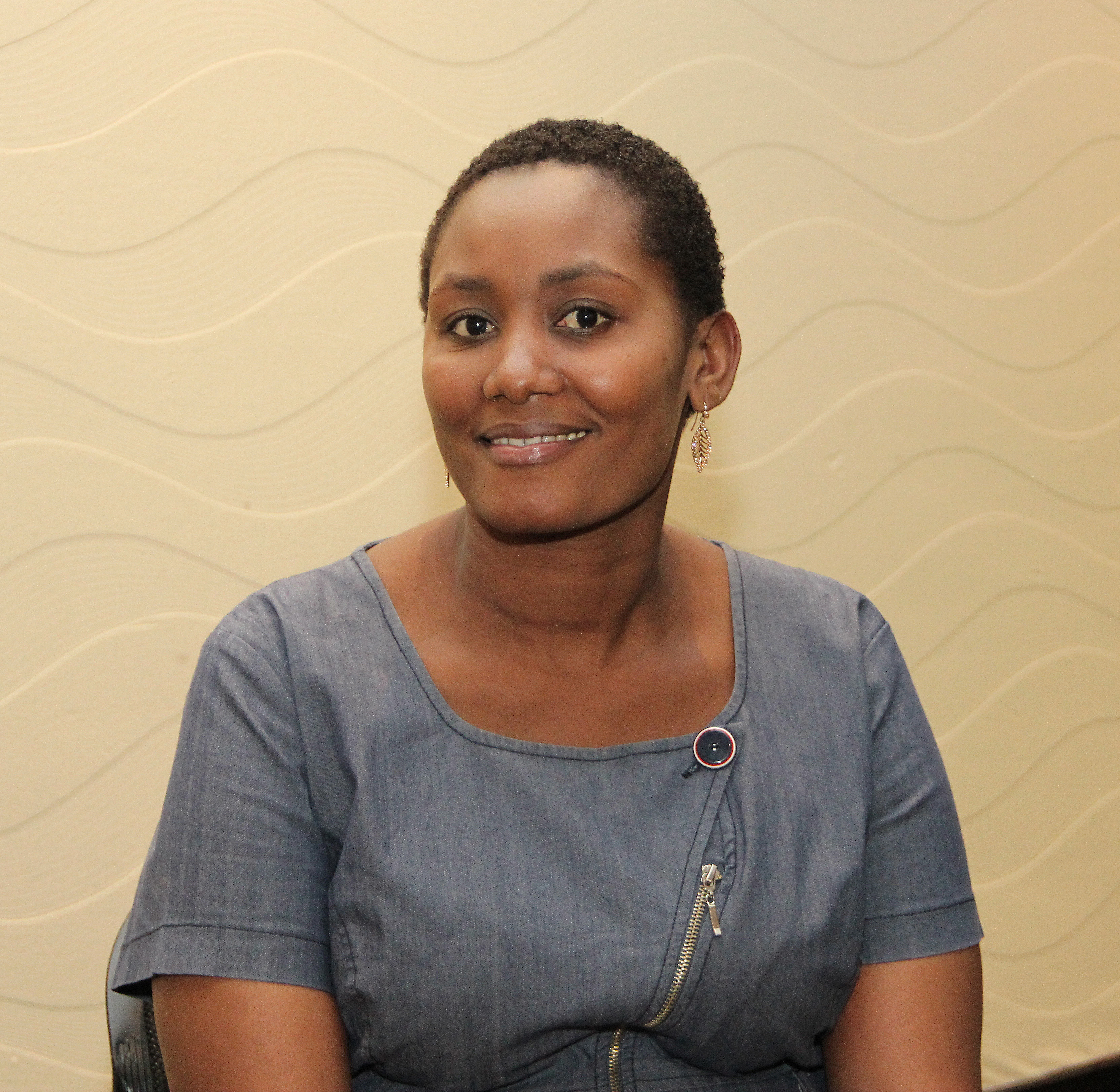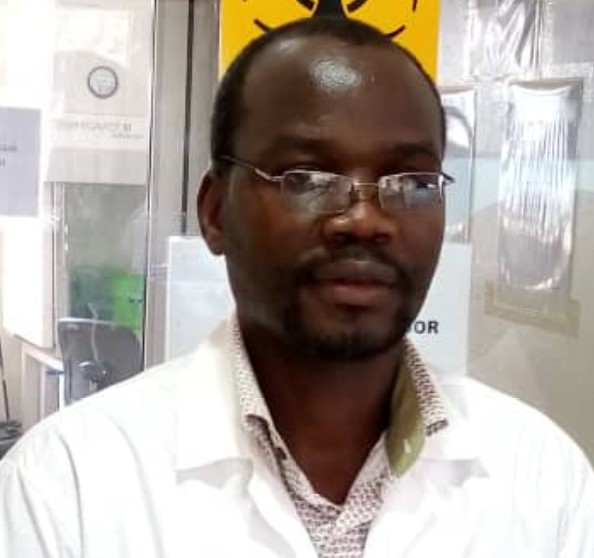

Dr
Stellah Mpagama
Current Organisation
Kibong'oto Infectious Diseases Hospital
Current Job Title
Physcian cum Scientist
Biography
Publications
Low antituberculosis (TB) drug levels are common, but their clinical significance remains unclear, and methods of measurement are resource intensive. Subjects initiating treatment for sputum smear-positive pulmonary TB were enrolled from Kibong'oto National TB Hospital, Tanzania, and levels of isoniazid, rifampin, ethambutol, and pyrazinamide were measured at the time of typical peak plasma concentration (C2 h). To evaluate the significance of the effect of observed drug levels on Mycobacterium tuberculosis growth, a plasma TB drug activity (TDA) assay was developed using the Bactec MGIT system. Time to detection of plasma-cocultured M. tuberculosis versus time to detection of control growth was defined as a TDA ratio. TDA assays were later performed using the subject's own M. tuberculosis isolate and C2 h plasma from the Tanzanian cohort and compared to drug levels and clinical outcomes. Sixteen subjects with a mean age of 37.8 years ± 10.7 were enrolled. Fourteen (88%) had C2 h rifampin levels and 11 (69%) had isoniazid levels below 90% of the lower limit of the expected range. Plasma spiked with various concentrations of antituberculosis medications found TDA assay results to be unaffected by ethambutol or pyrazinamide. Yet with a range of isoniazid and rifampin concentrations, TDA exhibited a statistically significant correlation with drug level and drug MIC, and a TDA of ∼1.0 indicated the presence of multidrug-resistant TB. In Tanzania, low (≤2.0) TDA was significantly associated with both lower isoniazid and rifampin C2 h levels, and very low (≤1.5) TDA corresponded to a trend toward lack of cure. Study of TDA compared to additional clinical outcomes and as a therapeutic management tool is warranted.
In Tanzania sputum culture for tuberculosis (TB) is resource intensive and available only at zonal facilities. In this study overnight pooled sputum collection technique was compared with standard spot morning collection among pulmonary TB suspects at Kibong'oto National TB Hospital in Tanzania. A spot sputum specimen performed at enrollment, an overnight pooled sputum, and single morning specimen were collected from 50 subjects and analyzed for quality, quantity, and time to detection in Bactec MGIT system. Forty-six (92%) subjects' overnight pooled specimens had a volume ≥5 mls compared to 37 (37%) for the combination of spot and single morning specimens (P < 0.001). Median time to detection was 96 hours (IQR 87–131) for the overnight pooled specimens compared to 110.5 hours (IQR is 137 right 137–180) for the combination of both spot and single morning specimens (P = 0.001). In our setting of limited TB culture capacity, we recommend a single pooled sputum to maximize yield and speed time to diagnosis.
Setting
Kibong’oto National Tuberculosis Hospital (KNTH), Kilimanjaro, Tanzania.
Objective
Characterize the diagnostic process and interim treatment outcomes from patients treated for multidrug-resistant tuberculosis (MDR-TB) in Tanzania.
Design
A retrospective cohort study was performed among all patients treated at KNTH for pulmonary MDR-TB between November 2009 and September 2011.
Results
Sixty-one culture-positive MDR-TB patients initiated therapy, 60 (98%) with a prior history of TB treatment. Forty-one (67%) were male and 9 (14%) were HIV infected with a mean CD4 count of 424 (±106) cells/µl. The median time from specimen collection to MDR-TB diagnosis and from diagnosis to initiation of MDR-TB treatment was 138 days (IQR 101–159) and 131 days (IQR 32–233), respectively. Following treatment initiation four (7%) patients died (all HIV negative), 3 (5%) defaulted, and the remaining 54 (89%) completed the intensive phase. Most adverse drug reactions were mild to moderate and did not require discontinuation of treatment. Median time to culture conversion was 2 months (IQR 1–3) and did not vary by HIV status. In 28 isolates available for additional second-line drug susceptibility testing, fluoroquinolone, aminoglycoside and para-aminosalicylic acid resistance was rare yet ethionamide resistance was present in 9 (32%).
Conclusion
The majority of MDR-TB patients from this cohort had survived a prolonged referral process, had multiple episodes of prior TB treatment, but did not have advanced AIDS and converted to culture negative early while completing an intensive inpatient regimen without serious adverse event. Further study is required to determine the clinical impact of second-line drug susceptibility testing and the feasibility of alternatives to prolonged hospitalization.
Little is known about plasma drug concentrations relative to quantitative susceptibility in patients with multidrug-resistant tuberculosis (MDR-TB). We previously described a TB drug activity (TDA) assay that determines the ratio of the time to detection of plasma-cocultured Mycobacterium tuberculosis versus control growth in a Bactec MGIT system. Here, we assess the activity of individual drugs in a typical MDR-TB regimen using the TDA assay. We also examined the relationship of the TDA to the drug concentration at 2 h (C2) and the MICs among adults on a MDR-TB regimen in Tanzania. These parameters were also compared to the treatment outcome of sputum culture conversion. Individually, moxifloxacin yielded superior TDA results versus ofloxacin, and only moxifloxacin and amikacin yielded TDAs equivalent to a −2-log killing. In the 25 patients enrolled on a regimen of kanamycin, levofloxacin, ethionamide, pyrazinamide, and cycloserine, the C2 values were found to be below the expected range for levofloxacin in 13 (52%) and kanamycin in 10 (40%). Three subjects with the lowest TDA result (<1.5, a finding indicative of poor killing) had significantly lower kanamycin C2/MIC ratios than subjects with a TDA of ≥1.5 (9.8 ± 8.7 versus 27.0 ± 19.1; P = 0.04). The mean TDAs were 2.52 ± 0.76 in subjects converting to negative in ≤2 months and 1.88 ± 0.57 in subjects converting to negative in >2 months (P = 0.08). In Tanzania, MDR-TB drug concentrations were frequently low, and a wide concentration/MIC range was observed that affected plasma drug activity ex vivo. An opportunity exists for pharmacokinetic optimization in current MDR-TB regimens, which may improve treatment response.
Background
Lack of rapid and reliable susceptibility testing for second-line drugs used in the treatment of multidrug-resistant tuberculosis (MDR-TB) may limit treatment success.
Methods
Mycobacterium tuberculosis isolates from patients referred to Kibong’oto National TB Hospital in Tanzania for second-line TB treatment underwent confirmatory speciation and susceptibility testing. Minimum inhibitory concentration (MIC) testing on MYCOTB Sensititre plates was performed for all drugs available in the second-line formulary. We chose to categorize isolates as borderline susceptible if the MIC was at or one dilution lower than the resistance breakpoint. M. tuberculosis DNA was sequenced for resistance mutations in rpoB (rifampin), inhA (isoniazid, ethionamide), katG (isoniazid), embB (ethambutol), gyrA (fluoroquinolones), rrs (amikacin, kanamycin, capreomycin), eis (kanamycin) and pncA (pyrazinamide).
Results
Of 22 isolates from patients referred for second-line TB treatment, 13 (59%) were MDR-TB and the remainder had other resistance patterns. MIC testing identified 3 (14%) isolates resistant to ethionamide and another 8 (36%) with borderline susceptibility. No isolate had ofloxacin resistance, but 10 (45%) were borderline susceptible. Amikacin was fully susceptible in 15 (68%) compared to only 11 (50%) for kanamycin. Resistance mutations were absent in gyrA, rrs or eis for all 13 isolates available for sequencing, but pncA mutation resultant in amino acid change or stop codon was present in 6 (46%). Ten (77%) of MDR-TB patients had at least one medication that could have logically been modified based on these results (median 2; maximum 4). The most common modifications were a change from ethioniamide to para-aminosalicylic acid, and the use of higher dose levofloxacin.
Conclusions
In Tanzania, quantitative second-line susceptibility testing could inform and alter MDR-TB management independent of drug-resistance mutations. Further operational studies are warranted.
Project Title
Research Capacity Strengthening Programme for Emerging and Re-emerging Infectious Diseases Control in Tanzania
EDCTP Project
TMA2016SF1463
EDCTP Program
EDCTP2
EDCTP Project Call
Senior Fellowship (SF)
Host Organisation
| Department | Institution | Country |
|---|---|---|
| Research, Training & Innovation | Kibong'oto Infectious Diseases Hospital | TZ |
Project Objectives
Primary Objective • To assess the differences in changes of hearing thresholds in MDR-TB patients using NAC at a dose of 900mg daily or 900mg twice a day in combination with the aminoglycoside based regimen and compare with patients using the standard aminoglycoside based regimen. Secondary objectives • To assess the effect of NAC at a dose of 900mg daily or 900mg twice a day on pharmacokinetics of second-line anti-TB drugs • To assess safety and tolerability of patients on NAC at a dose of 900mg and 900 mg twice a day in combination with second-line anti-TB regimen • To characterize molecular mechanisms of drug-resistance in MTB from MDR-TB patients using TAC • To assess the effect of NAC on clearance of MTB using molecular bacterial load (MBL) Assay in MDR-TB patients
Study Design
Phase 2b randomized double-blind clinical trial
Project Summary
Background: Tanzania, one of the sub-Saharan African countries with endemic tuberculosis (TB) and Human Immunodeficiency Virus (HIV) is confronting emerging and re-emerging infectious disease threats such as multidrug-resistant tuberculosis (MDR-TB), dengue, chikungunya amidst the shortage of healthcare workers including medical researchers. Health research capacity strengthening (HRCS) has been recommended as one of the best approaches for the developing world in improving the ability to tackle epidemics. Aims and objectives: To conduct a clinical trial focused in TB/HIV patients that will not only answer an important scientific question of direct patient benefit but with additional components of establishing a clinical trial unit with capacity for laboratory scientists, research trialists, and a rapid response infrastructure. Methods: Through research aims proposed in the programme, the senior fellow will conduct a Phase 2b double-blind randomized controlled trial to evaluate the otoprotective efficacy, safety and tolerability of N-acetylcysteine in combination in adult subjects treated with kanamycin containing regimens for MDR-TB in Tanzania. In addition, trial participants will provide sequential sputum specimens to determine elimination of MTB in sputum using the molecular bacterial load (MBL) assay. The effect of second-line susceptibility will be determined by rt-PCR of MTB resistance determining regions as identified by the MTB specific TaqMan Array Card (TAC) platform on the elimination of MTB on the sputum. In addition, TAC results will be compared to conventional phenotypic drug susceptibility results and isolate with discordant results between TAC and the phenotypic tests will be interrogated by Whole Genome Sequencing (WGS) (on the Illumina MiSeq) platform. In the research described, next generation of scientists will be mentored at Master and Ph.D. levels. Likewise, mentees will acquire hands-on research skills in clinical trials and cutting-edge molecular diagnostic research. This will create a critical mass of experts and a functional clinical trial unit (CTU). Relevancy to EDCTP scope: The proposed programme will support the capacity strengthening of the Senior Fellow as African research leader using the train-the-trainer model. Two young investigators and two junior researchers at Ph.D. and Master degree levels respectively will be mentored during the conduct of proposed clinical trial activities. Expected impact: Researchers in this project will be designing and conducting clinical trials ( meeting the International Conference on Harmonisation – Good Clinical Practice (ICH-GCP) standards) and investigating infectious diseases pathogens using cutting-edge molecular diagnostics. The team will continuously thrive and address the challenges of infectious diseases threats in the country.


